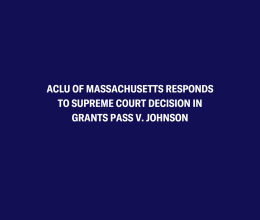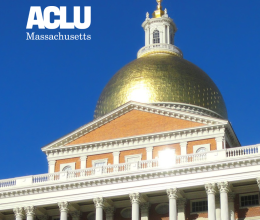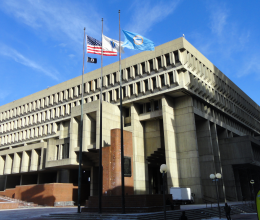
In March 2024, the ACLU of Massachusetts, together with law firm Allen & Overy, sued the Bristol District Attorney’s Office (BDAO) for records related to the office’s collection, storage, and use of DNA information. The lawsuit followed the BDAO’s failure to respond adequately to an ACLU public records request dated back to May 2023.
In 2019, according to the complaint, the BDAO, in collaboration with several other district attorney offices (DAOs), began a well-publicized campaign to obtain DNA information from the Massachusetts State Police Crime Laboratory (MSPCL). The DAOs sought this information for the explicit purpose of creating a local DNA database. According to the complaint, through written requests to the MSPCL and a grand jury subpoena, the BDAO obtained DNA information not only from individuals convicted of or suspects in criminal activity but also from victims of crimes, their family members, and consensual sexual partners who all may have submitted their DNA for the limited purpose of aiding in a specific criminal investigation. It is believed that the BDAO maintains the obtained DNA information in a local database.
The Massachusetts Forensic Sciences Oversight Board (FSOB) launched an initial investigation into the BDAO’s local DNA database in 2021 and requested information — but the BDAO refused to cooperate. As a result, the public has little, if any, knowledge about the scope, security, or use of the DNA information that the BDAO collected and stored. The complaint affirms the public’s right to know how the government is using their DNA.
In May 2023, the ACLU filed a public records request with the BDAO seeking records about its local DNA database. In its response, the BDAO revealed the following:
- It has no protocols regulating access to its local DNA database.
- It keeps no records of the names and positions of individuals with access to the database or logs documenting their access.
- It has no records of training for individuals with access to the database.
- It has no specific protocols regarding the use, dissemination, destruction, or removal of DNA data from the database.
Finally, the BDAO produced one heavily redacted Memorandum of Understanding (MOU) in response to the ACLU’s inquiry about individuals or agencies outside the BDAO with access to the database. However, the ACLU has since learned that the BDAO signed at least one additional MOU granting external party access to the database that it did not produce in response to the ACLU’s request.
The complaint alleges that the BDAO did not comply with its obligations under the Public Records Law. The ACLU seeks a court order instructing the BDAO to comply by searching for and producing all records responsive to the ACLU's 2023 public records request.






